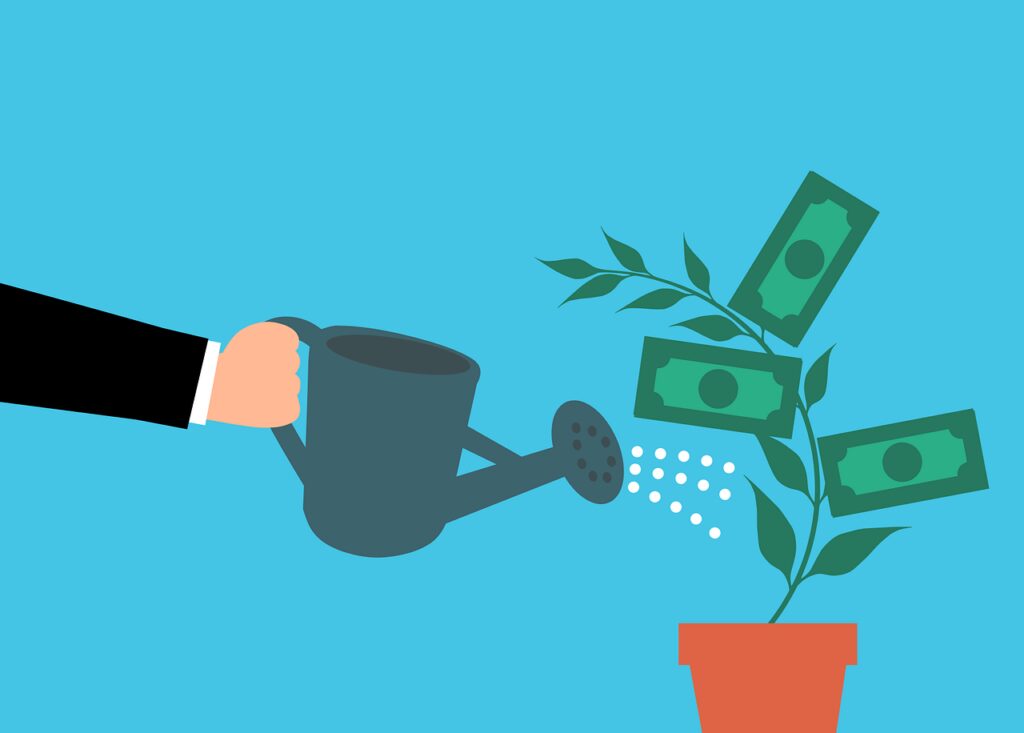Debt can feel overwhelming. Whether it’s credit card balances, student loans, or personal debt, carrying a large amount of debt can hold you back financially. Paying off debt faster isn’t just about reducing monthly payments—it’s about freeing yourself from the constant stress that debt brings.
In this guide, we’ll explore several strategies to help you pay off your loans faster. From focusing on high-interest debt to creating a personalized repayment plan, these methods can help you achieve financial freedom more efficiently. Let’s dive into the tactics that will help you eliminate debt and regain control of your finances.
Understanding the Impact of Debt on Your Finances
The Emotional and Financial Burden of Debt
Debt isn’t just a number on a spreadsheet—it’s a source of anxiety and financial stress. Constantly worrying about making payments can affect your mental health, reducing your quality of life. Additionally, debt can impact your credit score, making it harder to qualify for loans, credit cards, and favorable interest rates in the future.
How Debt Affects Your Credit Score and Financial Health
High levels of debt utilization contribute to a lower credit score, which in turn affects your ability to get loans or credit cards at better terms. Over time, accumulating interest can add up, leading to higher payments and a longer timeline for repayment.
The Cost of Debt Over Time: Interest Accumulation
The longer you carry debt, the more interest you’ll pay. For instance, a credit card with a high-interest rate can rack up hundreds or thousands of dollars in interest if left unpaid. By focusing on repayment, you reduce the interest burden and save more money in the long run.
Setting Clear Goals for Debt Repayment
Why Setting Goals is Crucial for Success
Before you dive into repayment strategies, goal-setting is key. Knowing exactly why you’re paying off debt and what you want to achieve keeps you motivated.
SMART Goals for Debt Repayment
Setting SMART goals (Specific, Measurable, Achievable, Relevant, and Time-bound) helps clarify your objectives. For example, “I want to pay off my credit card debt within 24 months” is a clear and actionable goal.
Short-term vs. Long-term Financial Goals
- Short-term goals: Pay off small debts quickly to gain momentum.
- Long-term goals: Pay off larger debts and build financial independence over time.
The Snowball Method: A Popular Debt Repayment Approach
How the Snowball Method Works
The snowball method focuses on paying off smaller debts first. Once the smallest balance is eliminated, you roll that payment amount into the next debt, creating a compounding effect.
Benefits of Starting with Smaller Debts
- Quick wins: Eliminating smaller debts builds confidence.
- Psychological boost: The sense of accomplishment keeps you motivated.
Psychological Impact of Paying Off Smaller Balances
Paying off smaller debts provides a sense of progress and reduces the emotional weight of multiple debts.
The Avalanche Method: Maximizing Interest Savings
What is the Avalanche Method?
With the avalanche method, you prioritize high-interest debts first to save the most on interest payments.
Focus on High-Interest Debts First
By tackling the debt with the highest interest rate, you reduce the amount of interest you’ll pay overall.
Pros and Cons Compared to the Snowball Method
- Pros: Saves more money on interest.
- Cons: It may take longer to see psychological wins compared to smaller debts.
Making Extra Payments: Accelerating Your Debt Repayment
The Power of Making Extra Payments
Making extra payments helps reduce your principal balance faster, cutting down the interest accumulation.
How Extra Payments Reduce the Principal Balance
Even small extra payments contribute to reducing your debt faster because interest is calculated on the outstanding balance.
Strategies for Finding Extra Money to Apply Toward Debt
- Side hustles: Earn extra income and allocate it to debt repayment.
- Budget trimming: Reduce non-essential expenses to increase extra payments.
The Role of Budgeting in Debt Repayment
How Budgeting Helps Identify Surplus Funds
A solid budget ensures you’re aware of where your money is going. Track expenses to find opportunities to allocate more toward debt repayment.
Essential Budgeting Tips for Debt Repayment Success
- Track spending: Identify unnecessary expenses.
- Cut out non-essentials: Allocate savings to debt payments.
- Automate payments: Set aside fixed amounts regularly.
Creating a Budget to Prioritize Debt Payments
Allocate a portion of your income solely to debt repayment, ensuring consistent contributions.
Debt Consolidation: Is It the Right Option for You?
What Debt Consolidation Involves
Debt consolidation combines multiple debts into one single loan, typically with a lower interest rate.
Pros and Cons of Consolidating Your Debt
- Pros: Simplifies repayments and often reduces interest rates.
- Cons: May extend repayment terms, increasing total costs.
When to Consider a Debt Consolidation Loan
- When dealing with multiple high-interest debts.
- If you can secure a loan with a lower interest rate.
Negotiating with Creditors: Reducing Debt Balances
How to Negotiate Lower Interest Rates or Settlements
Contact creditors to request lower interest rates or settlements. They may be willing to negotiate to avoid collection actions.
Steps to Approach Creditors and Lenders
- Call or write: Explain your financial situation.
- Request lower rates or payment plans: Offer a feasible alternative.
Pros and Cons of Negotiating with Creditors
- Pros: Reduces interest and debt balance.
- Cons: May impact your credit score temporarily.
Building an Emergency Fund While Repaying Debt
Why an Emergency Fund Matters
While paying off debt, having an emergency fund prevents you from resorting to credit cards for unexpected expenses.
Balancing Debt Repayment and Saving for Emergencies
- Build small amounts regularly while ensuring you maintain minimum debt payments.
- Focus on priorities: Debt repayment first, followed by emergency fund contributions.
How to Build an Emergency Fund with Limited Resources
- Start small: Set a manageable savings goal.
- Automate contributions: Regular small transfers add up.
Creating a Debt Repayment Plan with a Deadline
Why Setting Deadlines Matters for Motivation
Deadlines give you a clear sense of urgency and help you stay focused on your goal.
The Importance of Tracking Progress
Regularly review your plan and adjust if necessary to stay on track.
Adjusting Your Plan as Life Circumstances Change
Life happens—unexpected expenses can arise. Stay flexible and make adjustments as needed.
Avoiding Common Debt Repayment Mistakes
Common Pitfalls to Watch Out For
- Taking on new debt while repaying old debt.
- Neglecting budgeting and not allocating enough for debt payments.
- Ignoring the emotional side of debt, leading to impulsive spending.
Why Emotional Spending Can Derail Your Plan
Emotions like frustration or burnout can lead to splurges, derailing progress.
The Dangers of Taking on More Debt During Repayment
This can extend your timeline and increase the total amount paid in interest.
Staying Motivated and Committed to Your Debt-Free Goal
Tips to Maintain Focus and Avoid Distractions
Set regular check-ins and celebrate milestones to stay motivated.
Celebrating Small Wins to Stay Encouraged
Each debt paid off is a win—acknowledge these small victories.
How Accountability Can Keep You on Track
Share your goals with friends, family, or a financial advisor for added support.
The Psychological Impact of Debt Freedom
Benefits of Being Debt-Free
- Increased financial freedom and peace of mind.
- Improved credit score opens up better financial opportunities.
- Reduced financial stress leads to greater well-being.
How Debt Freedom Can Improve Your Financial Well-Being
Debt freedom provides a sense of control and allows you to allocate your resources toward future goals.
Conclusion
Paying off debt faster isn’t just about eliminating balances—it’s about gaining control over your finances and paving the way for a more secure future. Whether you choose the snowball method, avalanche approach, or a combination of strategies, the key is consistency, discipline, and setting clear goals.
By understanding how each method works and staying committed to your debt-free goal, you can reduce your debt, save on interest, and ultimately build a stronger financial foundation.
FAQs
- What is the snowball method, and how does it work?
The snowball method focuses on paying off smaller debts first, giving you quick wins and a psychological boost. - How do I decide between the snowball and avalanche methods?
The snowball method is better if you need psychological wins, while the avalanche method saves more on interest. - Can I repay my debt faster by consolidating?
Yes, if you consolidate debt with a lower interest rate, you can save on interest and simplify repayment. - How can I find extra money to make more debt payments?
Look for side hustles, cut back on discretionary spending, and reallocate your budget to prioritize debt repayment. - What should I prioritize first: debt repayment or building an emergency fund?
Start by paying off high-interest debt, then build an emergency fund to avoid resorting to credit cards during emergencies.




